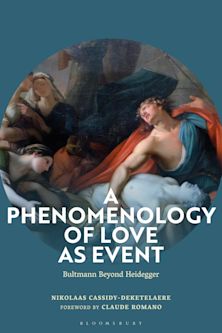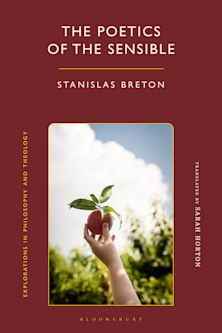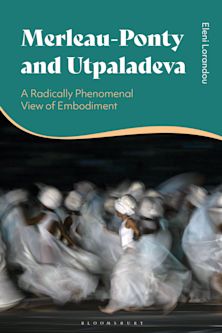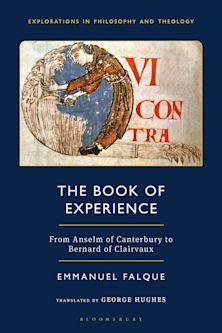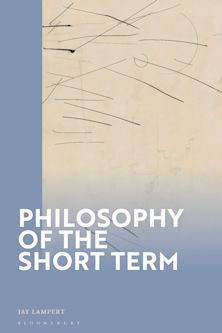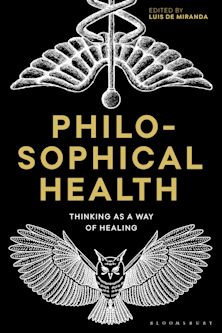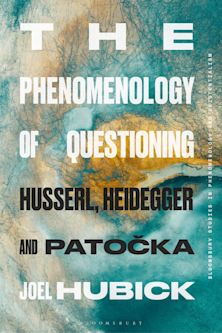- Home
- ACADEMIC
- Philosophy
- Phenomenology
- Phenomenology, Transversality, and World Philosophy
You must sign in to add this item to your wishlist. Please sign in or create an account
Description
Phenomenology, Transversality, and World Philosophy explores the concept of world philosophy (Weltphilosophie) to take into account the reality of today’s multicultural and globalizing world. It challenges the assumption that the particular in the West is universalizable, but the particular in the non-West is particular forever, using the concept of transversality to construct an intercontinental philosophy. In the tradition of Johann Wolfgang von Goethe’s world literature (Weltliteratur), and in dialogue with work in ethics and political philosophy, Hwa Yol Jung examines the roles that phenomenology and transversality play in constructing world philosophy.
Table of Contents
Acknowledgments
Introduction
Part I Origins of Transversality
1 The Dao of Transversality as a Global Approach to Truth: A Metacommentary on Calvin O. Schrag
Chapter 1 Addendum: Review Essay on Calvin O. Schrag's The Self after Postmodernity (1997)
2 Transversality and Geophilosophy in the Age of Globalization
3 The Task of Public Philosophy in the Transversal World of Politics
4 Edward O. Wilson's Theory of Consilience: A Hermeneutical Critique
Part II Two Elemental Preconditions of World Philosophy
5 Transversality, Harmony, and Humanity between Heaven and Earth
6 Phenomenology and Body Politics
Part III World Literature and World Philosophy
7 Zhang Longxi's Contribution to World Literature in the Globalizing World of
Multiculturalism
8 Wang Yangming and the Way of World Philosophy
9 Transversality and Fred Dallmayr's Comparative Political Theory
10 Edouard Glissant's Aesthetics of Relation as Diversality and Creolization
Part IV Heterotopia and Responsibility as F
Product details
| Published | 12 Mar 2021 |
|---|---|
| Format | Ebook (PDF) |
| Edition | 1st |
| Extent | 1 |
| ISBN | 9781978777057 |
| Imprint | Lexington Books |
| Illustrations | 1 b/w photos; |
| Publisher | Bloomsbury Publishing |
About the contributors
Reviews
-
“Hwa Yol Jung charts incisively how transversality, as an ethics, philosophy, and way of being, moves creatively in-between the binary ‘anarchy of differences’ versus ‘totalitarianism of identity’ that paralyzes contemporary political praxis. Whether it be discussing sincerity, harmony, alterity, or the ethics of responsibility, Jung’s scholarly reflections, with a Sinic accent, embodies the Dao of transversal phenomenology – a dialogic engagement with the other so desperately needed in a time of polarization.”
John Francis Burke, Trinity University
-
In this posthumous work, Hwa Yol Jung not only presents us with an exemplary world philosophy but also shows us how to do it. Instead of looking for universality or identifying particularity among philosophical traditions in the world, Jung stresses the importance of tranversality: the cultural, ethnic, and linguistic cross-breading.
Yong Huang, The Chinese University of Hong Kong
-
This rich collection of essays by the late Hwa Yol Jung reveals the depth of his cosmopolitanism and the vast range of his knowledge of philosophy and literature, both Western, from the ancient Greeks to Vaçlav Havel, and Eastern ('Sinic'). He was a committed proponent of the right sort of globalization and of 'geophilosophy' (attending to our ecosystem), and a strong, reasoned opponent of Eurocentrism and philosophical dualism, at home in many languages, in short, one of the foremost social and cultural thinkers of the last half-century. This volume helps us preserve his precious legacy.
William McBride, Purdue University
-
The themes of globalization and world philosophy are at the forefront of intellectual thinking in the twenty-first century. Hwa Yol Jung possesses the rare attribute of being firmly grounded both existentially and intellectually in both Asian and Western cultures, which inform his deep and rich treatment of these themes. Continuing his decades-long project of advancing a transversal approach to philosophy, Jung adroitly brings together hermeneutics, phenomenology, political theory, and ethical thinking to give us an expanded sense of what it means to be human in the globalized world.
Brian Schroeder, Rochester Institute of Technology
-
This volume presents the quintessence of transversal philosophy, which transcends Eurocentric universality. A fascinating work that opens a new horizon of communication between the East and the West as well as between classical, modern, and postmodern philosophy. This is a must read for students of comparative philosophy and those who are interested in understanding a globalizing multicultural world in a sensible manner.
Chung-in Moon, Chairman of the Sejong Institute

ONLINE RESOURCES
Bloomsbury Collections
This book is available on Bloomsbury Collections where your library has access.












